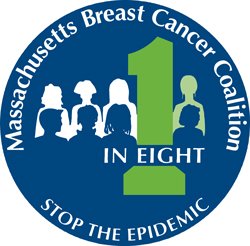Over the course of one month last year NSTAR sprayed over 2,000 gallons of pesticide mixture on 800 acres of Cape Cod. Many more thousands of gallons will be sprayed unnecessarily in the coming weeks according to NSTAR’s 2014 Yearly Operational Plan as approved by the Massachusetts Department of Agricultural Resources (MDAR). Even more amazing-more than half of the chemical cocktail is unidentified ingredients (“trade secrets”)! Rather a gamble to spray unknown chemicals over a vulnerable drinking water supply… NSTAR also sprays land it doesn’t own without the knowledge or consent of the owners. In this way corporate decisions in distant board rooms shape our local patterns of health and disease…..and pollution becomes personal.
In addition to potential impacts on incidence of breast and other cancers, the latest research shows prenatal exposure to pesticides can cause reduced intelligence and developmental delays similar to lead exposure. Dr. Philippe Grandjean from Harvard School of Public Health reports that many chemicals in commerce -including pesticides- cross the blood/brain barrier and are causing a silent pandemic of “chemical brain drain”, posing an insidious threat to the next generation’s brain development. “You only get one chance to develop a brain”, Grandjean states when discussing increased risks for learning disabilities, mental retardation, ADHD, autism, and other permanent neurological disorders. Even small deficits may negatively impact academic achievements, economic success, risk of delinquency, and quality of life. Grandjean suggests we must intervene now to prevent further exposures and avoid devastating societal impacts. For more info about the impacts of pesticides and other “brain drainers” on brain development, read Dr. Grandjean’s latest book: Only One Chance: How Environmental Pollution Impairs Brain Development–And How to Protect the Brains of the Next Generation.
Government at every level has failed Cape Codders as well as other residents throughout Massachusetts. We are on our own to protect our health from NSTAR (the public electric utility) and other rights-of-way (ROW) pesticide users such as National Grid, the railroads and MBTA. If NSTAR/National Grid off-road transmission line easements or railroad/MBTA lines are on or near your property, you will be most immediately and directly affected, though everyone nearby will be impacted eventually through pollution of the air, soil, or water.
Since NSTAR doesn’t honor the requirement to notify those that live on the rights-of-way (ROWs) or the ROW abutters, you may never know if NSTAR has sprayed pesticides on your property that will be tracked into your home. These pesticides and the accompanying -but unidentified-“other” ingredients included in pesticide formulations may remain in the home and act as an exposure reservoir for an unknown period of time. We will need to inform each other where and when the spray contractors (Vegetation Control Service (VCS), Lewis Tree Service, and Lucas Tree) spray. The “message” option on the GreenCAPE face book page (Like us on Facebook! ) can be used as a clearinghouse for information or you are urged to contact us directly at info@greencape.org, 508.362.5927, 508.317.8086. If you see something, say something. Help us warn other ROW residents so they can avoid exposure and the associated risks.
If the NSTAR/National Grid easements are on your land, research your deed for the specific easement language at your local Registry of Deeds (for Cape residents, see www.barnstabledeeds.org). Easement language varies and you may have legal rights to halt the rights-of-way toxic trespass. There is every indication that personal assertiveness of your property rights has the potential to halt the pesticide offensive. Senator Wolf, whose district includes Cape Cod, has repeatedly suggested non-violent civil disobedience to stop the spraying. Under federal law, pesticide applicators are prohibited from spraying pesticides while non-applicators are in the spray area.
Contractors cannot legally spray within 50 feet of a private well but private wells do not appear on NSTAR’s 30 year-old maps. Place a sign at your wellhead and signs warning contractors they are within 50 feet of your well.
It is illegal for NSTAR contractors to spray if the wind is not between 3-10 MPH, a rare occurrence on the Cape at least. Pay attention to the wind velocity if you know the pesticide applicators are spraying any local rights-of-way or rail beds. Report violations immediately to MA Department of Agricultural Resources, 617-626-1781 or 617-626-1776, and contact GreenCAPE. If you can, SAFELY video the spraying (from inside your house), note location, date, time, and local wind speed for legal purposes.
The effects of exposure to pesticides are often not evident immediately but can nonetheless have lasting consequences. Preventing exposure must be the priority. Additional actions that will limit exposure to pesticides sprayed on rights-of-way are found at http://greencape.org/wordpress
NSTAR’s insistence on chemical treatment on private and municipal property above Cape Cod’s EPA-designated sole-source aquifer is arrogant and immoral but clearly they are not alone in their misguided efforts to control vegetation regardless of the price to others. Our children should be allowed to develop to their highest intellectual potential and deserve every protection against “chemical brain drain” and breast and other cancers. No one should have to accept harmful pesticide spraying on their own or neighboring property or municipal lands just because it suits a corporation’s bottom line. Given that safer alternative vegetation control has been demonstrated to be successful, we must work together to prevent these unnecessary and questionable hazardous exposures. No poison, no excuses.
Submitted by Sue Phelan (info@GreenCAPE.org or 508.362.5927)
